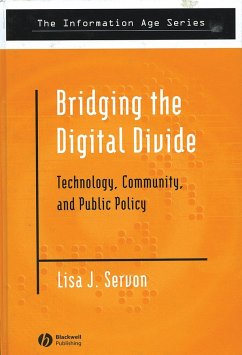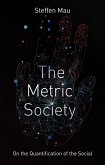Bridging the Digital Divide investigates problems of unequal access to information technology. The author redefines this problem, examines its severity, and lays out what the future implications might be if the digital divide continues to exist.
- Examines unequal access to information technology in the United States.
- Analyses the success or failure of policies designed to address the digital divide.
- Draws on extensive fieldwork in several US cities.
- Makes recommendations for future public policy.
- Series editor: Manuel Castells.
Dieser Download kann aus rechtlichen Gründen nur mit Rechnungsadresse in D ausgeliefert werden.
'Bridging the Digital Divide makes it clear that the digital divide is only one symptom of persistent poverty -- a problem that touches us all. Fortunately, this is a case in which treating the symptom may help cure the disease. Servon's book shows us that programs aimed at closing the divide are creating pathways out of poverty for many low-income technology users, who are acquiring career skills, educational advantages, and new knowledge that can lead to living-wage jobs'. Laura Breeden, Director, America Connects Consortium
This book is very dry, but in a good way, laying out where exactly the digital divide falls and assessing how programs across the country have tried to answer the question: Why cant Johnny surf? A must-read for serious technology activists. City Limits
This interesting and valuable addition to the literature on urban poverty and access to computers linked to the Internet is an empirical study that concludes with some sensible and thoughtful policy recommendations. Highly recommended. E. Lewis, New College of Florida
This book is very dry, but in a good way, laying out where exactly the digital divide falls and assessing how programs across the country have tried to answer the question: Why cant Johnny surf? A must-read for serious technology activists. City Limits
This interesting and valuable addition to the literature on urban poverty and access to computers linked to the Internet is an empirical study that concludes with some sensible and thoughtful policy recommendations. Highly recommended. E. Lewis, New College of Florida









